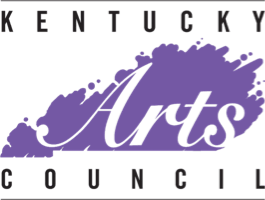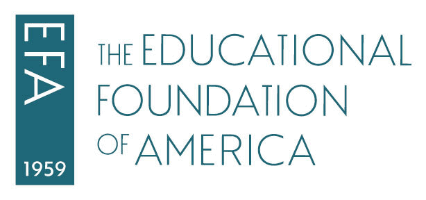Making art + media in the mountains since 1969.
Appalshop’s Roadside Theater is a professional ensemble of community-trained storytellers in the coalfields of Appalachia.
Since 1975, Roadside has performed across our region and in over 2,000 communities in 45 states and abroad. Our plays are fashioned from the music, stories, dance, and traditions of local life.
Our democratic populist orientation creates the conditions for working- and middle-class communities to come together in their full diversity to tell their own story. It shapes the content and style of our plays, our process for creating them, and our partnerships with the communities who watch and perform them.
Our work explores the uniqueness of our region, as well as experiences like economic exploitation, immigration, incarceration, violence against women, land rights, and race, class, and generational divides that link our local struggles with communities around the country.
Wherever we work, we’re committed to creating culturally-specific performance and programming that explores big-picture issues through local stories told in the voices of the people living there.
Making Plays
We often create plays in collaboration with other community-based ensembles and organizations, providing a forum for communities to share their own knowledge and expertise.
Descendents of early settlers have made plays about their families' past; participants in coal camp community centers have made plays about their county's future; residents of women's shelters have made plays about domestic violence; and cancer survivors have made plays about their battles with the disease.
Roadside committed in 1989 to performing only with arts presenters who contractually agreed to bring all parts of their communities together. Up to 70 percent of our national audiences live in rural communities, a third are people of color, and more than 70 percent earn less than $50,000 a year. Because we rarely use elaborate costumes and sets, we can perform almost anywhere.
Storytelling is a distinctive feature of our region's folk culture, and much of our material comes from stories that have been passed down orally. Roadside's approach to live performance has been described as "forthright" and "intimate," with actors batting lines back and forth and telling stories from multiple perspectives.
Audience members take part in the call-and-response, too, often joining in group singing, contributing their own perspectives and stories during performances, and keeping a running banter with actors.
The end result is work Smithsonian Magazine characterized as
“dramaturgy with a difference; a hybrid form of play-acting as organic to this hardbitten coal country as the Cumberland walnut, an Appalachian oral history carefully crafted into down-home docudrama.”
Building Coalitions
From the very beginning, Appalshop’s Roadside Theater has been a people’s theater, oriented toward building movements.
We’re the co-founder of the regional network Alternate ROOTS, as well as of the national multicultural American Festival Project and we played a key role in starting the Network of Ensemble Theaters.
Since 1981, we've worked with the New Orleans-based Junebug Productions, originally started during the civil rights movement as the Free Southern Theater as part of the Student Nonviolent Coordinating Committee (SNCC).
In response to increasing Ku Klux Klan activity in the South, Roadside and Junebug began performing for each other's home audiences — one predominately white, the other black, both low- to moderate-income. The success of our exchange led us to work together to create two jointly developed plays, Junebug/Jack and RoadBug, which toured nationally for eight years.
Our work with Junebug is one of Roadside's many collaborations with communities that — on the surface — couldn’t look more different. We make plays and advocate for cultural policy with the Ashé Cultural Arts Center in New Orleans and the Caribbean Cultural Center African Diaspora Institute in Harlem. We work with performers in the coalfields of south Wales, connecting their communities' struggles to our own.
We have worked for decades with Pregones Theater, a Puerto Rican company from the Bronx, most recently on the musical Betsy!, which tells the story of a Puerton Rican jazz singer from the Bronx who grapples with her newly-discovered Appalachian heritage. Roadside, Junebug and Pregones created and toured Promise of a Love Song, a musical play of stories from all three cultures.
For the past 30 years, Roadside has also conducted a cultural exchange with traditional Native American artists in Zuni, New Mexico, eventually founding the first Zuni language theater company, Idiwanan An Chawe, and co-creating the bilingual play Corn Mountain/Pine Mountain: Following the Seasons.
Many of these collaborations have developed into ongoing, vital coalitions that integrate organizing and economics into our work of culture exchange. We celebrate our cultural wealth in order to promote shared resistance against organized exploitation that keeps our communities disempowered and divided.
Community Cultural Development
When communities come together to share stories, making a play is often just the beginning. With newfound allies and a renewed sense of ownership, they find themselves ready to work together to create a cultural, civic, and economic future on their own terms. We call this process community cultural development.
from
1974 — 2016
Roadside:
produced
60+
original ensemble and intercultural plays
staged
3,244
performances globally
conducted
2,756
workshops for play creation and community cultural development
performed or conducted workshops in
1,588
communities in 44 U.S. states and 10 countries
(US, Canada, Czech Republic, Slovakia, Ireland, England, Wales, Sweden, Denmark, Poland)
with roughly 774,600 attendees or participants, and
held over 150 long-term community residencies across the U.S., ranging in time from 2 weeks to 3 years

We worked with our longtime collaborator the Free Southern Theater/Junebug Productions to develop the story circle, a tool to gather communities' stories that has now been used in theater- and media-making, community organizing, popular education, policy creation, and grassroots community development efforts around the world.
Through one of these community cultural development residencies, we launched a project called Performing Our Future. Now it's a national coalition, with residents of the Kentucky coalfields working closely with neighbors in the inner city of West Baltimore, the Black Belt of Alabama, and the Rust Belt of Wisconsin.
Initiated in response to the collapse of the local economy, Roadside worked with economists, organizers, and community leaders to create a new play called The Future of Letcher County. The process catalyzed relationships that soon grew into the Letcher County Culture Hub, a network of 15 community organizations that continues to celebrate and grow the county's cultural assets in order to incubate businesses, strengthen civic life, and keep the county's future in the hands of its people.
Since 2018, we've been collaborating to expand community wealth and power through theater and media, building an expanding network of grassroots allies for culture-driven policymaking, organizing, and economic development. Our goal is simple: we want to create a future where everyone belongs and everyone's contribution matters — where together, we own what we make.
Shifting the Policy Conversation
Appalshop believes culture is on the front line in the struggle for human rights. Roadside's work in particular is rooted in the populist conviction that politics is downstream from culture: who controls the culture also controls the narrative framework within which politics operates. We consider cultural policy and advocacy to be an essential part of our work, and we regularly present our ideas on a national and international stage on topics ranging from federal arts and culture policy to the forgotten legacy of popular democracy in community development.
We offer lectures and workshops in colleges and universities; we write articles and record podcasts for diverse audiences; and we participate in public conversations from the county courthouse to the White House.
We collaborate with research and advocacy groups to advance cultural and economic policy that strengthens community centers of power and reflects communities' inherent genius.
We are currently compiling forty years of Roadside's plays and writing into “Art in a Democracy,” a two-volume anthology and digital resource that will also include reflections by longtime Appalshop allies including Wendell Berry and bell hooks.
"Art in a Democracy" will provide a comprehensive account of Roadside's distinctive approach to cultural, political and economic work: a "theater of affirmation" that brings togerher neighbors far and near to tell their own stories, listen to each other, and discover the shared dreams that drive them toward profound and often radical change.

















